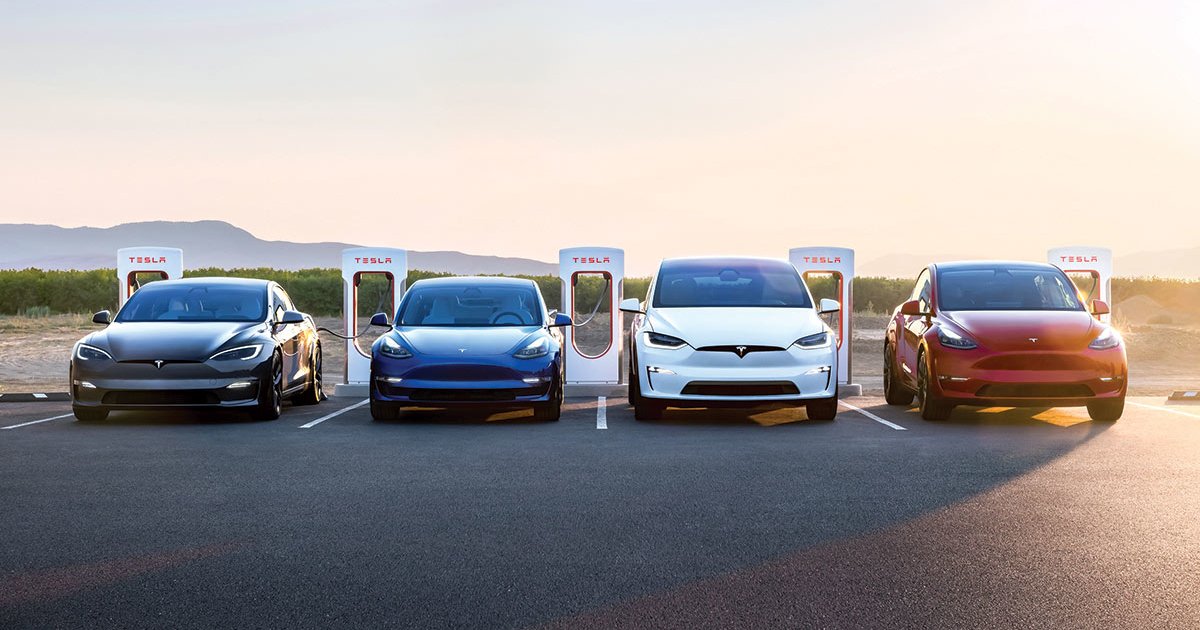
Tesla’s U.S. new-vehicle registrations grew 61 percent in the first half of the year, easily beating BMW for the top spot among luxury automakers, regardless of fuel type.
All major luxury brands except Tesla and Genesis posted lower first-half registrations, according to new data from Experian.
But there was a bright spot for legacy automakers and EV startups in the data: New registrations of full-electric vehicles rose sharply among non-Tesla brands.
“Tesla’s growth is expected, but what’s more exciting to see is the fiery jump in sales for legacy automakers that have introduced new EVs onto the scene only recently,” said Robby DeGraff, industry analyst at AutoPacific.
Tesla new-vehicle registrations in the January-June period rose to 228,989 from 142,543 in the year-ago period. Registrations for luxury competitor BMW fell by 13 percent to 157,838 vehicles. Lexus saw a 19 percent drop to 133,616 and Mercedes was down 14 percent to 133,520, according to Experian.
Because Tesla doesn’t break out U.S. sales, the registration data serves as a proxy for comparison with other brands in the U.S. Registration numbers may include estimates and don’t track perfectly with official sales.
In addition to taking the luxury-segment crown, Tesla dominated the full-EV market among all brands, luxury and mainstream, with a 68 percent share, similar to last year. In the first half, EVs made up about 5 percent of U.S. light-vehicle registrations, up from 2.5 percent last year.
Experian showed an upward trend in EV registrations among non-Tesla brands. Legacy auto companies and startups posted 58 percent EV growth in the first half, with 109,620 registrations among 21 brands for a combined 32 percent market share.
EV growth among non-Tesla brands suggests that the introduction of new electric models could put a dent in Tesla’s market share later this year. Several brands that didn’t post EV sales in the first half of 2021 are now selling them, including Mercedes, Toyota, Genesis and Cadillac, the data showed.
In addition, Ford is ramping up output of its F-150 Lightning pickup after its spring launch. Experian noted 1,288 Lightning registrations in the first half, but Ford reported sales of 2,173 in July alone.
Volkswagen began U.S. production of its ID4 crossover in late July, targeting 7,000 a month by the fourth quarter. VW has been importing the ID4 from Germany, and global supply has been tight.
EV startups Rivian and Lucid improved production numbers in the second quarter for their high-end EVs after struggling in the first quarter because of parts shortages and growing pains.
To be sure, Tesla has a new factory in Texas that is also ramping after a slow start earlier this year. The automaker said its factory in Fremont, Calif., hit record output in the second quarter.
But the burst of EV activity will make for an intense race in coming months and years, analysts said.
“These numbers show American consumers are becoming more and more aware that there are a lot of great EVs out there that aren’t Teslas,” DeGraff said.
DeGraff mentioned the success of the Ford Mustang Mach-E, crazy demand for the F-150 Lightning, growing deliveries of the Kia EV6 and Hyundai Ioniq 5, and the quick jump onto the sales chart by Polestar. VW, too, should also do better with the U.S.-built ID4, he said.
According to Experian numbers for the first half of the year, the non-Tesla EV leaders include:
- Ford, which doubled last year’s numbers to 21,820 in the first half.
- Kia with a six-fold increase to 18,967.
- Hyundai with a 150 percent increase to 14,994.
- Audi with a 16 percent increase to 8,183.
- Polestar with an eight-fold increase to 4,873.
By auto group, Hyundai Motor Group — Hyundai, Kia and Genesis — tallied the most registrations after Tesla, with 34,138 in the first half, for a 10 percent EV market share. Ford Motor Co. had a 6 percent share, and Volkswagen Group — VW, Audi and Porsche — had 5 percent.
Among brands losing ground in the EV race this year: Volkswagen with a 17 percent decline to 4,752 registrations in the first half; Chevrolet with a 68 percent drop to 6,633; Porsche with an 18 percent decline to 4,332; and Jaguar, with a 65 percent drop to 263.